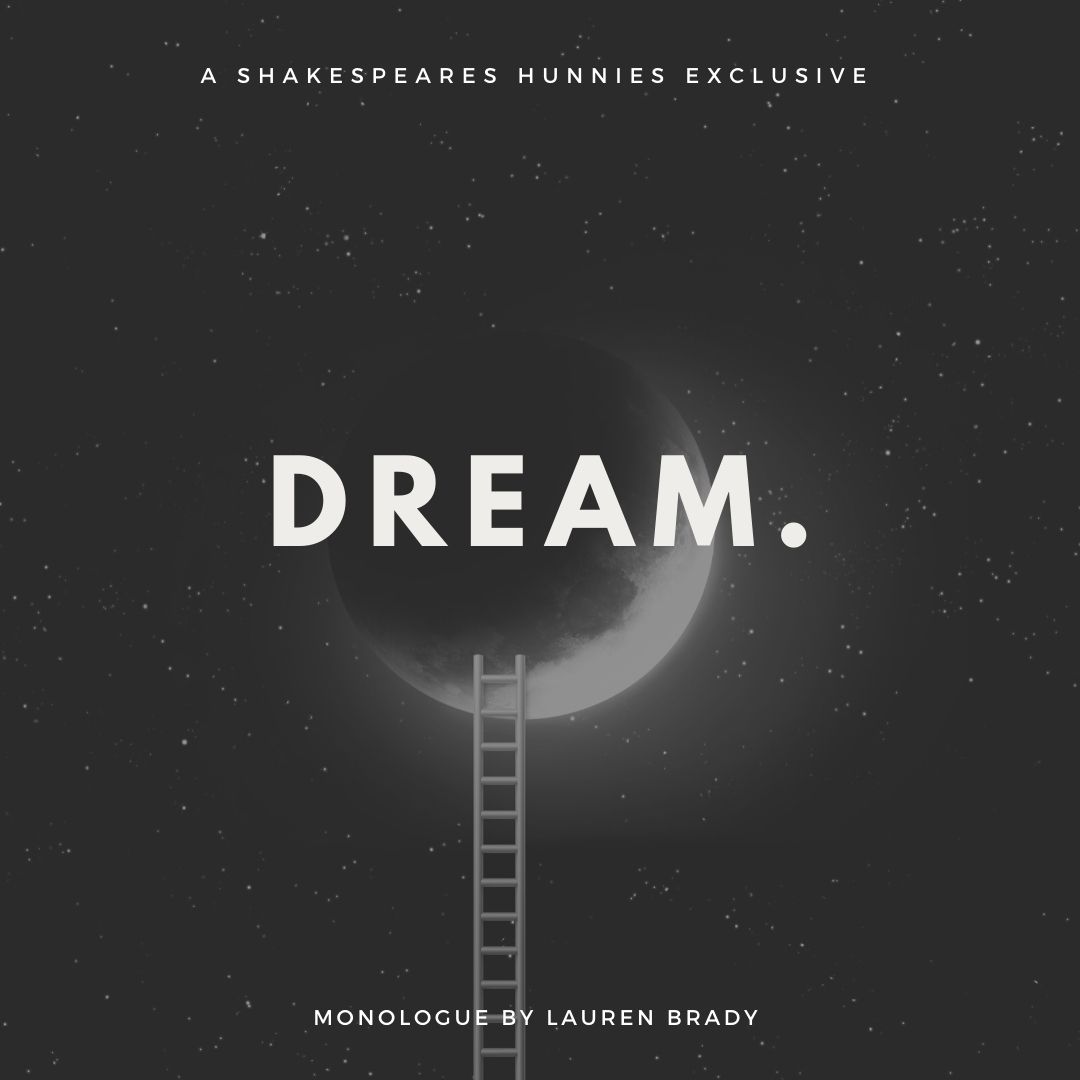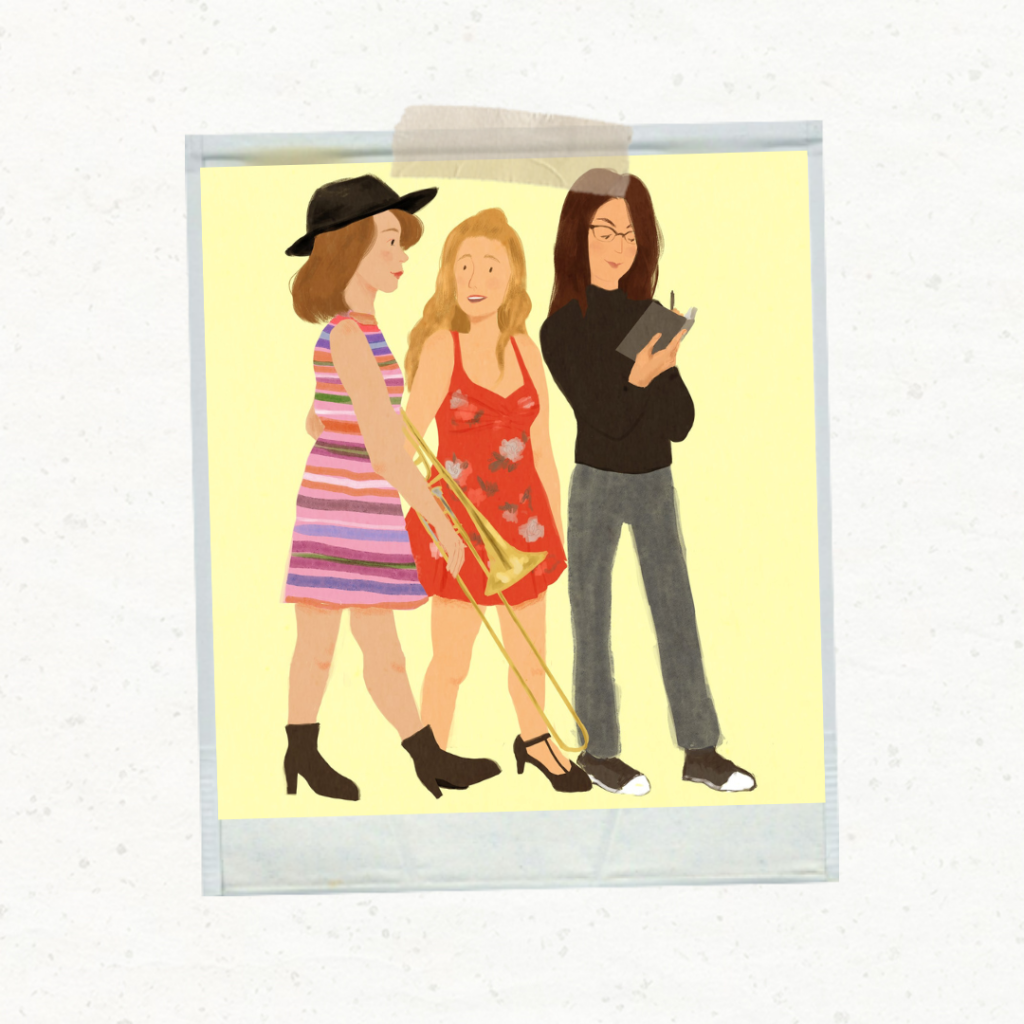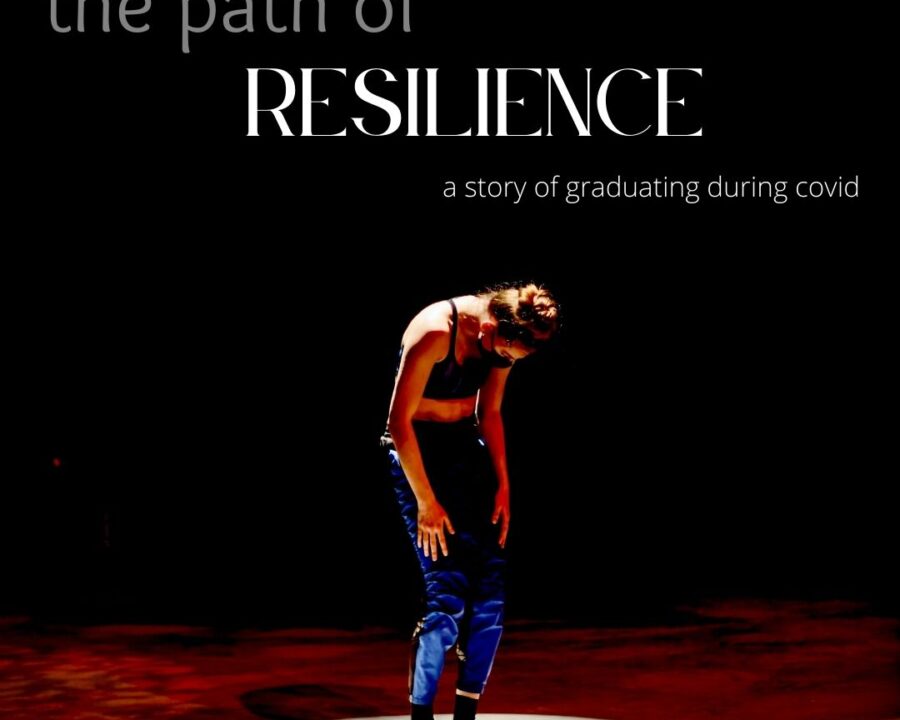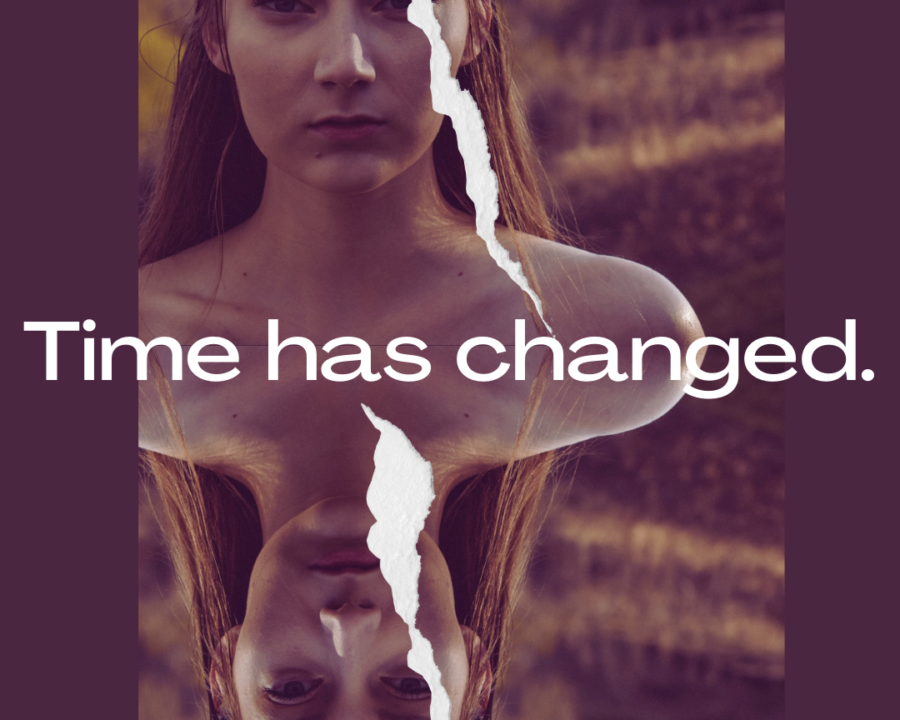
TUESDAY’S TEA
December 22, 2020
STORYTIME
January 11, 2021We are excited to share with you the company Settle a Score Productions a musical theatre company created and ran by students at the University of Alberta. Shakespeare’s Hunnies had the pleasure of interviewing Sarah Dickson ( Director/co-founder), Julia Stanski (Director/ co-founder), and Olivia Menard ( Composer/Director). We learned so much about women’s history in the prairies in 1900s, importance of musical theatre, and how to be collaborative leaders. These young emerging artists are going to do incredible things in our Albertan theatre community and Canada.
Origins of Settle a Score

Settle a Score Productions was founded in the summer of 2017 by University of Alberta students. Sarah Dickson, Julia Stanski, and Curtis Ward. In 2020, Olivia Menard joined the team after. As a local non-profit theatre company, Settle a Score’s goals are to provide performance and mentorship opportunities for non-professional artists, foster connections
between performers, and give back to Edmonton.
Their first production in November 2017, Songs of the Silver Screen, featured a multigenerational cast from ages 7-70 in a revue of songs from movie musicals. Since 2017, the team has been hard at work on their next project: the writing and production of an original musical called Half the World. Set in 1900s Winnipeg, it follows the women’s suffrage movement and the impact of the Great War through the lens of our young female protagonist Kitty Price. In December 2020 they’ll be releasing the first sneak peek of Half the World: an excerpt from one of its songs, performed by talented local musicians and singers!
Settle a score came from many extensive discussions and because we debate a lot on different topics and ideas so it’s always a score to settle and we also liked the resonance of a musical score.
Julia Stanski
Half the World the Musical
What drew you specifically to the 1900s in Manitoba?
Sarah: Manitoba was the first province that gave “women” the right to vote provincially. The other two prairie provinces came months, and then everyone else slowly trickled in after. However, that was only for certain women who were allowed to vote at that time. I guess with also about women’s women’s it is not just about women’s. The women and men who were part of these movements had a lot of contrasting ideas. In 1913, when we started our story, we just finished the big boom of immigration into the prairies’ downturn and the first world war. So we see a lot of social change, the different ideas with immigration, gender roles, and the church’s role in society.
Julia: There was lots of urbanization, new technologies were coming during the 1900s, for example, electricity, running water, and streetcars. The world of the prairies was changing very quickly, and that always brings many interesting challenges and social upheaval with it.

Women & History
Eunice: It is important that you mentioned that not all women were given the right to vote because Indigenous women and women of colour were not allowed to vote. In terms of writing, are these women’s stories being told in your musical or mentioned?
why do you think this story needs to be produced now and especially in a musical format?
Julia: The construction of musicals being a happy and cheery thing from the beginning has been used to sort of slide in social messages underneath all the sunny nature. Carousel by Oscar Hammerstein, their song “You’ll never walk alone” that everyone thinks is so happy. Still, Carousel is about domestic violence and how society enables and looks away from it. Shows like South Pacific again very fun and happy with great songs. The song “I am going to wash that man right out of my hair” is about racism and mixed-raced marriage laws. And people don’t seem to notice that because when there is good music, you end up not thinking about it but when the songs get into your head. You end looking up the lyrics and realizing how music is a powerful way to tell stories, and as we have seen with Hamilton, for example, just because it is a musical does not mean that there is not serious content and ideas in it. It is a way to get people to listen and learn who they would not otherwise have in the first place.
Sarah: The reason we chose this period is that there is this idea that Canadian history is boring and that not much has happened, and it all occurred in the east of Canada. For us, it was necessary to show other things in Canada that did occur that are interesting and great to learn, and as Julia said, music is a powerful form to tell different stories.
Julia: How we tell the stories of various women in Canada is something we grapple with absolutely. And we know that white women of settler descent, the stories of Indigenous, Metis and Women of Colour are not necessarily our stories to tell, but that does not mean we want to leave them out of our story because that is what happens often. We are very early in this process, but we plan to consult with as many people as we can. In our last video project, we made sure to ask for a cast of diverse looking women. When we cast the show hopefully in the future, we are looking forward to having a diverse cast despite the constant argument that they would not have been there during that time. And of course, they would, and that is part of our show’s message. Also showing how the prairies was a much more diverse place and that society was grappling with that like we are doing so now. And we are still finding ways to tell stories from diverse communities in Alberta, which will be a continuous process as the project evolves.
The Process of Creating
Olivia: In our recent project, it involves so many students; for example, our orchestra was completely made up of music students from the UofA. And so we are taking on those people to record and work with them and our singers who are students too and by doing so, creating opportunities for our peers to make music and create art.
Sarah: In our first production back in 2017, we needed to include various people who are not necessarily trained in either music, dance etc…It was really important for us to have different experiences in “Songs of the Silver screen” in that show, we had our youngest member who was six or seven years old, and our most senior member was 70 years old. Also, within that, a tremendous range of experiences in theatre and dance and music. It doesn’t matter where you are in your journey with theatre. It is more important to us that you have a passion for being a part of it and creating with other people.
Olivia: There is a lot of reading beforehand because Julia and Sarah are such great academics, and their research is informed by history. A lot of my work is informed by theirs. Typically, the libretto is separate from the music because they are working on the writing at different times, and I would work on a song and piece for a few weeks. The first thing I did because they had music from their previous musical back in high school, and I took those and adapted it to the orchestra. It was a piano score. I changed it and some of the harmonic function, and so now, with the music video, Sarah took all these Christmas music and layered them. I wrote the whole orchestra accompaniment, and even now, looking at the score is always a working progress. I would get feedback from the musicians about how some notes don’t work for flute etc.
Sarah: We follow the same principles of a collaborative process, set goals of what we want to accomplish, and understand each other’s time.
Collaborative Style of Directing

Julia: It has been a learning curve for sure, especially with our first production in 2017. We went into knowing that we aren’t extremely experienced directors only have done a few shows in high school. We were very open to learning from the people we were directing and working with, especially the ones more experienced than us.
We had a wonderful cast in our first show they were very patient and generous and they taught us a lot about what they knew and one of our cast members ran their own company, so they were also generous with their advice. And people who have done tons of shows were constructive in shaping their pieces and giving us great feedback, and we had many little people, as Sarah mentioned working with us. They gave great feedback because the questions they had were similar to what people who have no theatre experience would have. I think our cast was very respectful towards our artistic leadership even though we are young women, and I think everyone who we cast accepted that and were collaborative. They did not expect autocratic leadership, but they respected our vision for the show.
Sarah: As well as working as co-directors, we present a united front. We can varying opinions; however, our vision, our goal is united. That has always been very important to us. How we present ourselves to our cast is very important because even though we are young or not the most experienced, we have a united vision and are passionate about our work.
Eunice: I like what you said about how it is important to have a united front. I find that when you are presented with any challenges and people witness any cracks within your communication, that can make the ensemble not necessarily not trust you but hesitant to be open with you or follow through if the directors seem unsure.

Advice to Emerging Directors
Lauren: I am curious about collaboration in general, the fact that there are multiple voices involved, and the three of you are embarking on this journey together. Do you have any advice for young collaborators who are working through new working relationships?
What is the best way to stay connected in this artistic endeavour?
Olivia: In a musical context, everyone is bringing so much to the table while you are the director, in a sense promoting your vision. All the feedback they give to you will be super essential in how you are going to distill with people. I was very fortunate that the people I worked with were kind and open when things were not working for them, which is helpful, especially when you are giving visual cues. Humility is a huge part of becoming a good director, being sure of artistic direction, what you want to see and hear from them. My advice would be to listen to the people you are leading because you lead them towards the goal. They are not the ones pushing you towards the goal and knowing that it is a group effort, so that’s what I would advise people directing a new discipline to execute your vision, whatever it may be.
Sarah: yes, clear communication and knowing that how you are going to get there may not be exactly how you envisioned it. Open to what other people bring to the table.
Julia: what has been very important to us has been blocking off work time versus friend time. We were friends for a very long time before we became artistic partners. So compartmentalizing that and setting clear guidelines for how you work together. So let each other know what is working and what is not working for us—talking to each other often with honesty and gently.
Olivia: Another thing is we have grown a lot from in the past years sometimes when we are talking about history and writing, what ends up coming up in discussions about ideologies, religion etc. We have become great at doing if the debate is moving away from what is needed to be addressed and is heading towards unproductive conversations. We are good at stepping back and getting back on track. Because no hill is worth dying for because I value both Sarah and Julia’s opinions, they are great to work with.
Sarah: Respect is the foundation for everything, especially when you have more than two or three people involved. The two wonderful people I get to work with are super intelligent women, which makes things interesting a good challenge to respect the boundaries between friendship and professionalism. It is not always easy, and it isn’t going to be perfect right away, and we had to work hard on it, but it is worth it because you learn to become a much more effective team that way.
Thank you so much Settle a Score productions for sharing with us about your journey. Their music video “Tidings” excerpt of their upcoming musical is linked down below as well as their socials to keep up with their content and get better acquainted with history of women in Canada. They post fun facts and other cool information every week! Keep theatre alive by supporting the youth in our community.
If you are interested in being a feature in our next Emerging Artist’s blog contact us today!




